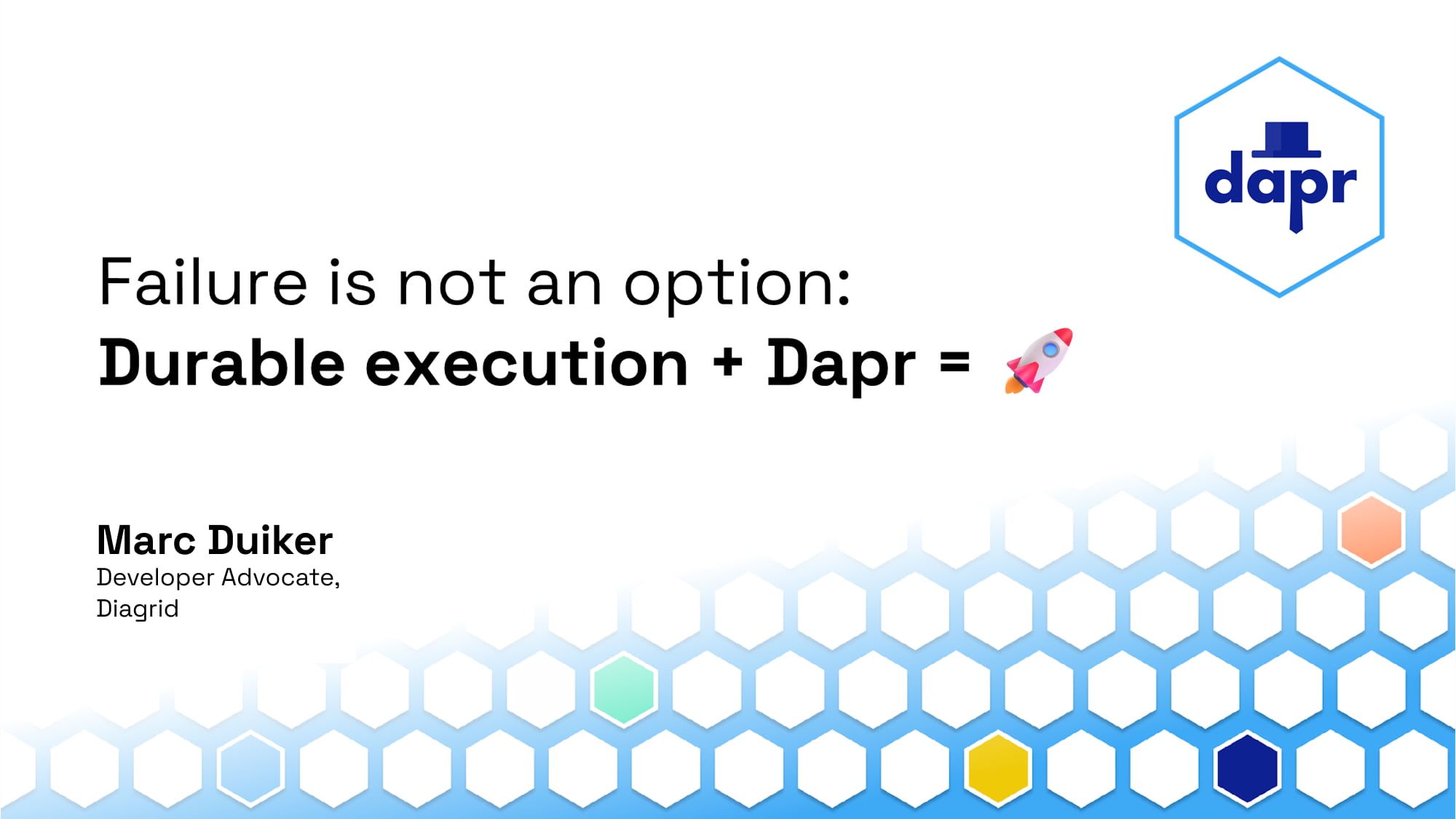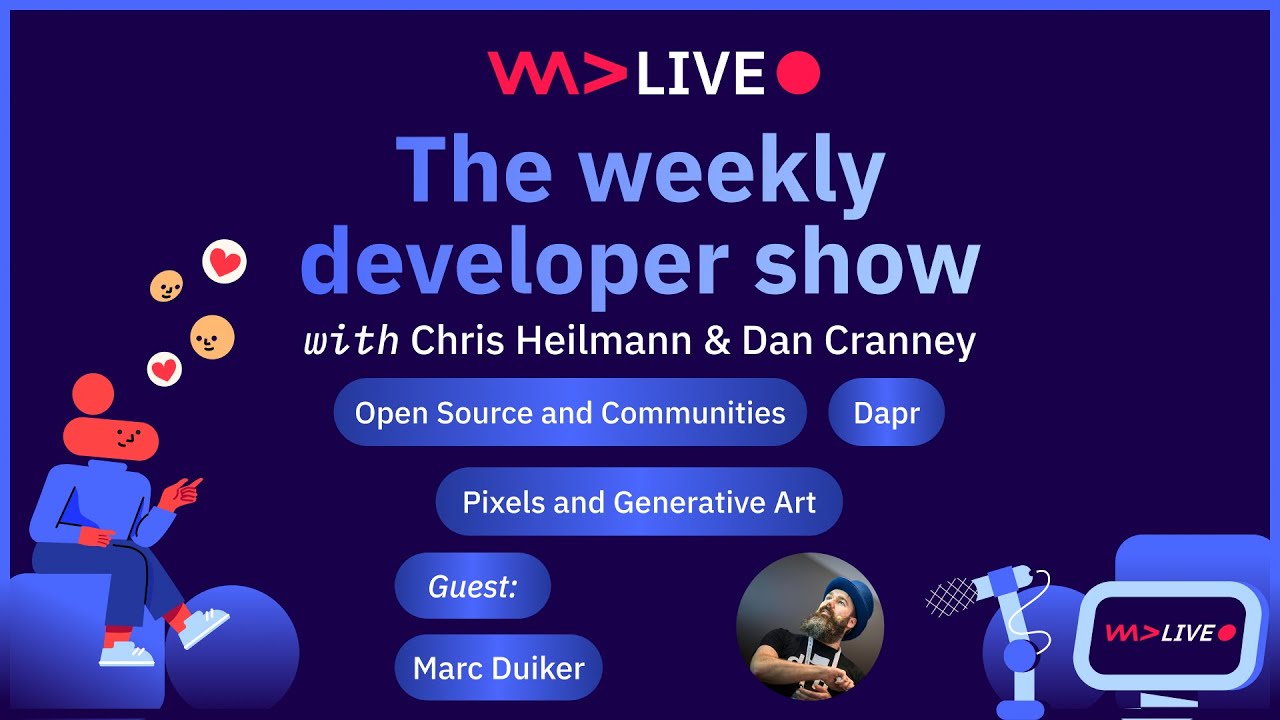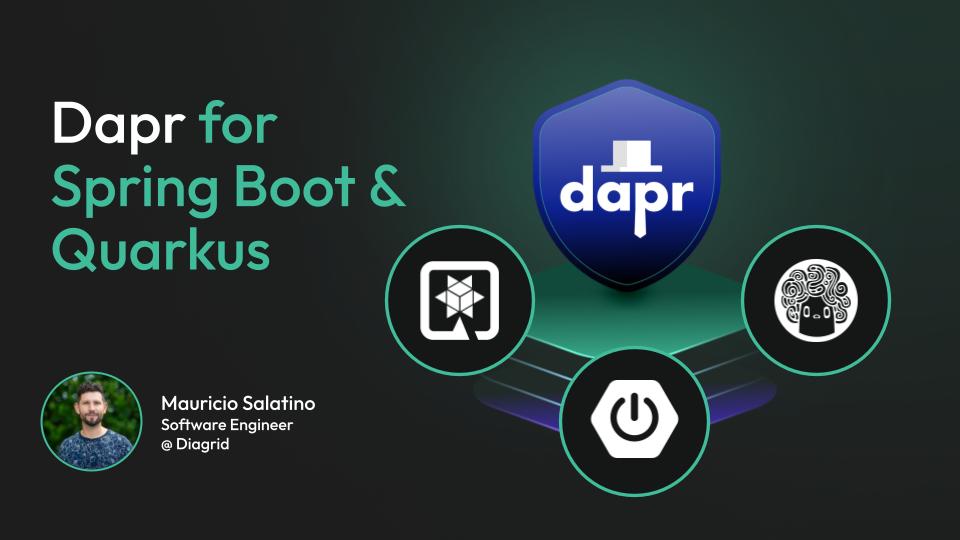Building Better Developer Platforms: Insights from Joe Beda at Dapr Day 2024
As developers, we often focus on code and features. But what makes a platform truly successful? At Dapr Day 2024, Joe Beda shares hard-earned wisdom about platform building that every developer and architect should hear.
The Platform Journey Isn't Linear [07:08]
"Platforms grow over time," Joe explains, painting a realistic picture of platform evolution. It's not about having every feature from day one. Instead, users typically approach platforms with specific problems to solve, gradually discovering and utilizing more capabilities as they go.
This organic growth pattern is crucial to understand, especially for those of us designing and building platforms. Why? Because it influences everything from feature development to documentation strategy.
Predictability: Your Platform's Secret Weapon [07:37]
Here's a truth bomb from Joe: "Predictability is important because as people start using more and more of the platform, you want that experience, that intuition that they learn in one corner of the platform to be applicable across the rest of the platform."
Think about it. When developers learn one part of your platform, how much of that knowledge transfers to other areas? This is where Kubernetes shines, and where Joe points out AWS faces challenges.
The Kubernetes Success Story [08:07]
Want to see predictability in action? Joe points to Kubernetes as a masterclass in consistent design:
- Every object follows the same metadata/spec/status pattern
- The controller model works consistently across different resources
- Labels and annotations work the same way everywhere
"That consistency," Joe notes, "is one of the things that people like about Kubernetes."
The AWS Learning [09:13]
In a thoughtful critique, Joe uses AWS as a counter-example. Despite its incredible success, AWS shows what happens when teams operate too independently. Learning how to use S3 doesn't help much when you move to EC2. Each service feels like its own world, increasing the cognitive load on developers.
The Layering Challenge: Making Complex Things Manageable [10:23]
Joe shares a brilliant insight about platform complexity, using load balancing as an example. What starts as "how hard could it be?" quickly becomes a maze of features:
- Path-based routing
- Regional distribution
- A/B testing
- Server draining
The real art? Making simple use cases simple while enabling complex ones. As Joe quotes Larry Wall: "Make easy things easy and hard things possible."
Documentation: The Unsung Hero [13:34]
Here's where many platforms fall short. Joe introduces a fascinating framework for documentation:
- Depth developers want deep understanding
- Breadth developers want to get things done
- Some are studying, others are working
- Some need theory, others need practice
The Platform Builder's Curse [15:09]
Perhaps the most valuable advice comes near the end: "It's easy to build for a user that doesn't exist." Joe advocates for constant user feedback and iteration. The best platforms evolve through conversation between builders and users.
The Surprising Truth About Shipping [16:18]
Here's a gem that might make you uncomfortable: "If you're not embarrassed about what you're shipping, you're waiting too long to ship it." It's a powerful reminder that perfect is the enemy of good, especially in platform development.
Looking Forward
As Dapr continues to evolve, Joe's principles serve as valuable guideposts for the community. Whether you're building a platform, contributing to one, or just using one, these insights help understand what makes platforms truly successful.
Remember: great platforms aren't built in isolation. They're shaped by real users solving real problems, guided by consistent patterns and thoughtful design.
Want to dive deeper into platform building principles? Check out Joe's expanded document version of the talk, and join the conversation with him on Bluesky.




